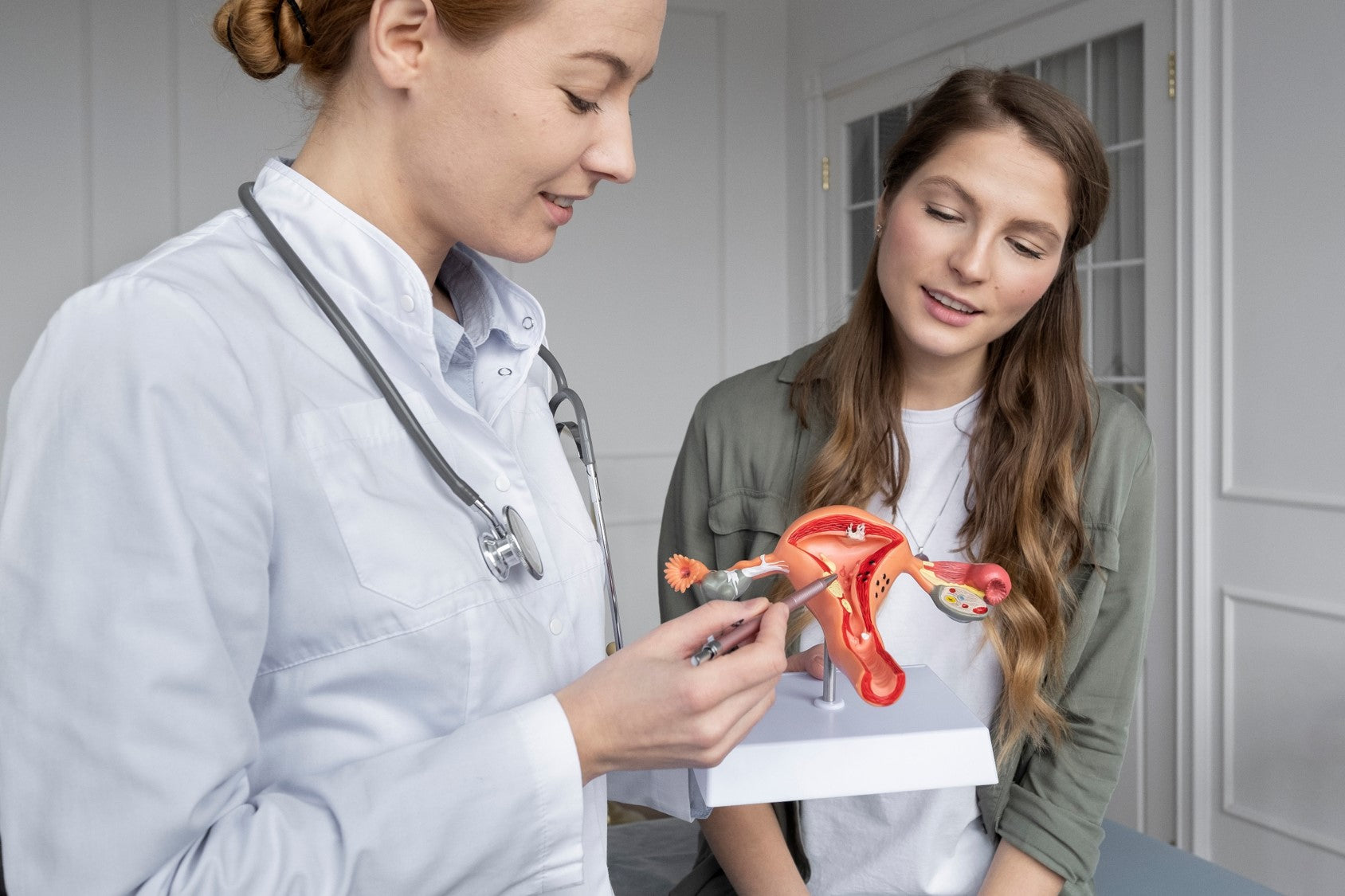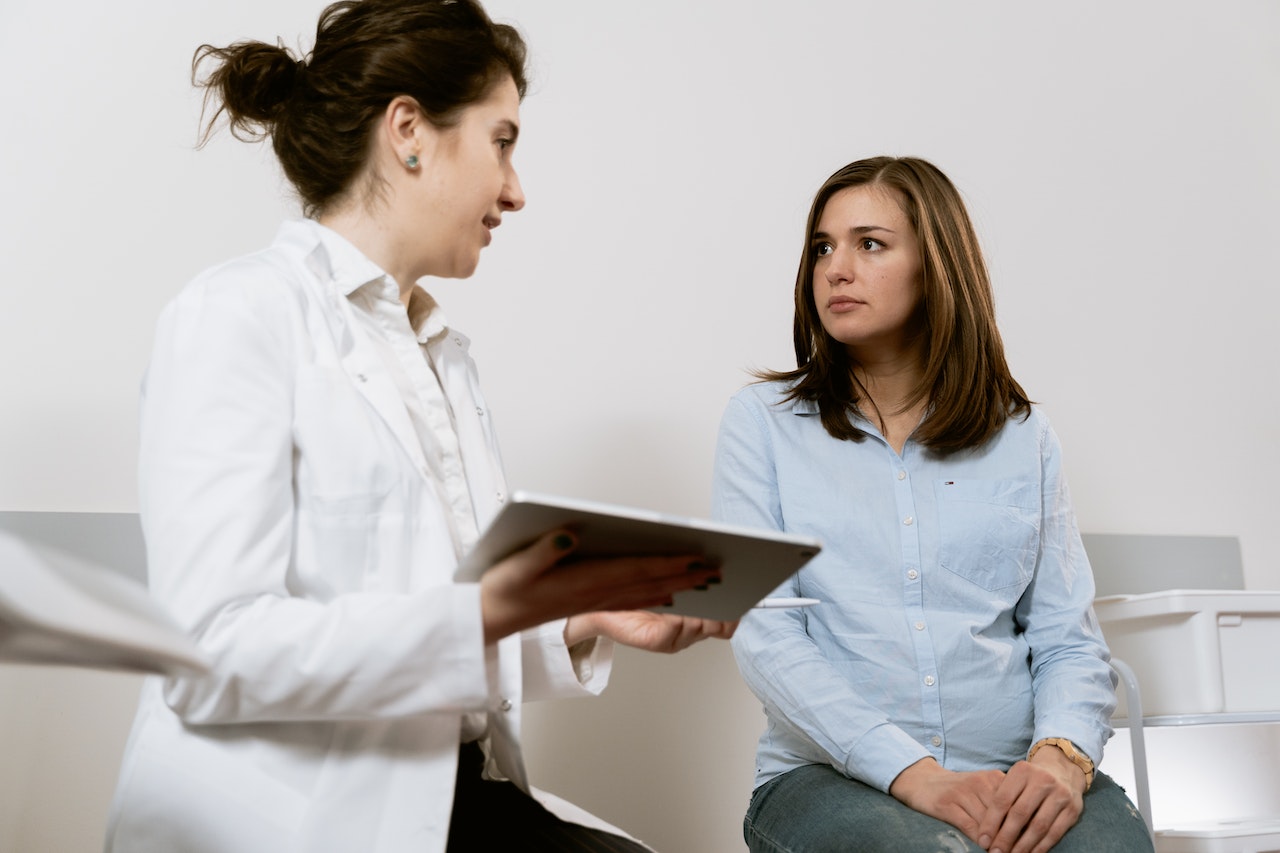Polycystic Ovary and Fertility: What can you do to improve your symptoms and take care of your fertility?

Polycystic ovarian syndrome (PCOS) is a hormonal condition that affects 1 in 10 women of childbearing age. Women with PCOS have higher levels of insulin and androgens (male-type hormones) than others. This hormonal imbalance can cause a variety of symptoms and affect fertility.
Some women with PCOS have ovarian cysts, which is why it is called "polycystic," but the name can be confusing because many who have it do not have cysts.

What are the symptoms of PCOS?
The most common symptoms of polycystic ovarian syndrome are: absence of menstrual periods, irregular, infrequent or prolonged periods. Other symptoms include:
- Hair loss or hair in places you don't want (like your face) due to excess androgen
- Acne
- Darkened skin or excess skin (skin tags) on the neck or under the arms
- Humor changes
- Pelvic pain
- Weight gain in the abdominal area
- Difficulty getting pregnant
How does PCOS affect fertility?
PCOS causes hormonal imbalances where women tend to have higher levels of androgens, known as male hormones. It is also common for them to have resistance to insulin, which is the hormone that controls blood sugar, and progesterone deficiency, which contributes to irregular or absent menstrual periods.
High levels of androgens interfere with the development of the ovules and the ovulation process. If a healthy egg is not released, sperm cannot fertilize it, which means you cannot easily get pregnant.

How is PCOS diagnosed?
No single test can diagnose PCOS. Just your doctor asking questions about your symptoms and medical history and giving you a physical exam and possibly a pelvic exam.
They will probably do blood tests to measure your hormone levels, blood sugar, and cholesterol. An ultrasound can check your ovaries for cysts, look for tumors, and measure the lining of your uterus.
What is the treatment for PCOS?
PCOS treatment focuses on managing symptoms that worry you, such as infertility, hirsutism (excess hair), acne, or obesity. Specific treatment may include lifestyle changes or medications. If you're not planning to get pregnant, your doctor may prescribe hormonal birth control, such as the skin patch or the pill. These medications can help reduce the risk of endometrial cancer, control your periods, clear up acne, and reduce excess body hair. However, if you want to get pregnant, the specialist will be able to inform you of your options according to your particular case.

Changes in lifestyle?
A specialist may recommend losing weight with a healthy diet and exercise, because losing weight, even moderately, can benefit polycystic ovarian syndrome, improving insulin resistance and hormonal imbalance. A weight loss of just 5% can lead to a significant improvement in PCOS symptoms.
Diet changes
Eating the right foods and avoiding certain ingredients can help you control your symptoms. A nutritious diet can help regulate your hormones and your menstrual cycle. Processed foods with lots of preservatives, sugars, and refined flours can contribute to inflammation and insulin resistance.
It is advisable to include plenty of vegetables, fruits, protein, good fats, and whole-grain or low-glycemic sources of carbohydrates. Carbohydrates and protein have an impact on energy levels and hormones. Proteins stimulate your body to produce insulin, beneficial for maintaining stable blood sugar levels throughout the day.
The importance of anti-inflammatory foods
Polycystic ovary syndrome is defined as chronic low-grade inflammation , eating an anti-inflammatory diet such as the Mediterranean diet, and consuming anti-inflammatory foods such as olive oil, green leafy vegetables, fatty fish, and low-mercury fish such as sardines and anchovies, nuts and fruit can help alleviate symptoms.

Increase your iron intake
Some women with PCOS experience heavy bleeding during their period, this can result in iron deficiency or anemia. Be sure to see a specialist if you experience fatigue, weakness, pale skin, headaches, or shortness of breath. Also try to consume foods rich in iron such as red meat, legumes, eggs or shellfish.
supplementation
Numerous studies show that some micronutrients can improve insulin sensitivity and help women with PCOS to improve their egg quality and fertility.
Vitamin D and Calcium can help in weight loss, follicle maturation, menstrual regularity and improvement of hyperandrogenism.
Inositol has shown positive results with insulin resistance and oocyte maturation.
Vitamin C, alpha lipoic acid, N-acetylcysteine and Melatonin are powerful antioxidants that help reduce oxidative stress that is common in women with PCOS and that causes damage to mitochondria, affecting egg quality and fertility.
We recommend high-quality, comprehensive supplements such as our Excellence Fertility supplements, expertly created with the highest quality, highly bioavailable ingredients.
Sources
Zafari Zangeneh F, Naghizadeh MM, Masoumi M. Polycystic ovary syndrome and circulating inflammatory markers. Int J Reprod Biomed. 2017 Jun;15(6):375-382. PMID: 29177240; PMCID: PMC5605859.
Therapeutic effects of calcium & vitamin D supplementation in women with PCOShttps://www.sciencedirect.com/science/article/abs/pii/S1744388112000060
The effect of nutrient supplementation in the management of polycystic ovary syndrome-associated metabolic dysfunctions: A critical review https://www.ncbi.nlm.nih.gov/pmc/articles/PMC6250088/
Effect of Nutritional Supplementation on Oxidative Stress and Hormonal and Lipid Profiles in PCOS-Affected Femaleshttps://www.mdpi.com/2072-6643/13/9/2938
- Tags: consejos salud Fertilidad ovario poliquístico ovarios Problemas de fertilidad Salud reproductiva
0 comments




